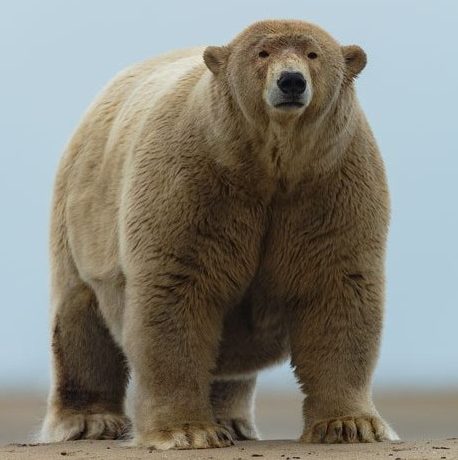Here’s a trip down memory lane for Arctic sea ice at the end of July, which as far as I can see provides no evidence that a very low sea ice disaster is in the cards for polar bears this year.

Here’s a trip down memory lane for Arctic sea ice at the end of July, which as far as I can see provides no evidence that a very low sea ice disaster is in the cards for polar bears this year.

Comments Off on Polar bear habitat update for end July 2021 compared to previous years
Posted in Life History, Sea ice habitat
Tagged Arctic, breakup, catastrophe, Hudson Bay, ice-free, polar bear, sea ice, tracking
For your amusement, I present a book review of Eaten from an Austrian academic specializing in contemporary literature by the name of Michael Fuchs. I came across his book chapter last week, buried deep within Google offerings, while looking for something else. I laughed all the way through it.

Here is the abstract:
“This chapter draws on Margaret Atwood’s vision of Canada as a Gothic space, examining how contemporary texts continue to invoke imagery of human and animal as antagonists competing for the same space. Fuchs analyzes a corpus of three “bear horror” fictions, the horror film Backcountry (2014) and two novels, The Bear (2014) by Claire Cameron and Susan J. Crockford’s near-future polar bear-themed Eaten (2015). It argues that animal predation on humans provides a powerful symbolic vehicle for bridging the human–animal divide, as it overrides the theory of human exceptionalism, offering a critical view of the entanglement of humans and nonhumans in the Anthropocene.”
A friend that I shared the essay with commented:
“My favourite sentence (new word of the day, class, please use “diegetic” in a sentence):
Continue reading“These constant slippages between ontological levels puzzle the reader in ways similar to how Anna is confused by the goings-on in the diegetic reality.” [pg. 263]
Comments Off on A literary review of my polar bear attack thriller, with all the condescending attitude you’d expect
Posted in Advocacy, Book review, Polar bear attacks, Sea ice habitat
Tagged advocacy, climate change, Eaten, literature, novel, polar bear, review, thriller
As of Monday (19 July), more polar bears had come ashore near Churchill and on the shores of Wakusp National Park but some are still out on the bay. The pattern of ice breakup this year means most bears will come ashore well south of Churchill and make their way north over the summer and fall. There have been two Churchill ‘problem’ bear reports so far but not one for this week, so I’ll go ahead and post without it.

Comments Off on Western Hudson Bay polar bears: still some out on the sea ice, some causing trouble
Posted in Life History, Polar bear attacks, Sea ice habitat
Tagged breakup, Churchill, Hudson Bay, polar bear, predictions, problem bears, sea ice, western hudson bay
Beaufort Sea ice coverage is about average for this time of year, again failing to decline in lock-step with other Arctic regions. Will there be lots of fat bears onshore like there was in 2019? Only time will tell.

Comments Off on As much Beaufort Sea polar bear habitat at mid-July 2021 as there was in 1982
Posted in Population, Sea ice habitat
Tagged Alaska, extinction, polar bears, sea ice, Southern Beaufort, survey
So far, the first evidence I’ve seen of a bear ashore in Western Hudson Bay was one photographed near Churchill Manitoba on 28 June (below).
However, by 5 July, the first of six collared females from Andrew Derocher’s WH study (below) had also come ashore, as did others along the shore of Wapusk National Park. This is not ‘early’ – just earlier than the last few years. Like last year, however, there is still a fair amount of sea ice left on the bay and some bears seem to be choosing to stay out longer on what ‘experts’ describe as unsuitable habitat. As you can see on his bear tracker map, Derocher uses a filter that shows only ice >50% concentration because he and his buddies have decided that bears so dislike anything less that they immediately head to shore as soon as ice levels fall below this threshold.
Continue readingComments Off on Polar bears have begun to come ashore on Western Hudson Bay
Posted in Life History, Sea ice habitat
Tagged Churchill, polar bear, predictions, sea ice, Wapusk National Park, western hudson bay
You must be logged in to post a comment.